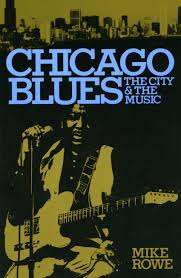CHICAGO BLUES DOCUMENTARY
The Blues. A music genre that originated in the Southside of the United States, popularized by African-Americans, and derived from spirituals, folk songs, chants, acapella, rhymes, and work songs. The origin of the blues is the suffering of the blacks in the United States at the time. Due to the magnitude of the racism and prejudice that they faced. The word blue, as defined by the dictionary, refers to a depressed, melancholic, and sad state. So, the kind of music portrayed by this musical genre is not very far-fetched. Depressed. Melancholic. Sad. The Blues, however, has evolved a lot since then.
Chicago. One of the largest cities in the United States, had a recorded population of three million, three hundred and sixty-six thousand, nine hundred and fifty-seven people in the year 1970. Almost thirty percent of that population was black, concentrated on the south side. That region, at that time, was filled with decaying slums. At the time, a good percentage of Chicago's residents lived below the poverty line. Most of the musicians at the time had to have day jobs to support themselves and their music. Chicago became home to the Blues following the great migration.
In the years following the world wars, there was a long-term migration of black people from the south of the United States to Chicago and some other northern cities to find greener pastures. This is referred to as the Great Migration. By 1970, African-Americans constituted about 33% of the population. Due to this massive migration, the blacks, who were alienated, now became a force to reckon with. They contributed actively to the political, cultural, and economic life of the city. The great migration's impact on the cultural life of Chicago is probably best felt and demonstrated by the prominence of blues music in Chicago at the time. The music became one with Chicago and Chicago became one with the music. Blues music was played in the churches, clubs, juke joints, and family and community association meetings. In particular, blues music influenced gospel music and vice versa. The tales of slavery and the suffering of the blacks were prominent among the stories told by the blues. People like Muddy Waters, Buddy Guy, and Johnnie Lewis set a foundation of blues music that is still being listened to today.
Pioneers of the Chicago blues in that era included greats like Buddy Guy, Muddy Waters, Howlin' Wolf, Johnnie Lewis, Junior Wells, Floyd Jones, Willie Dixon, and others like them. These people invented and smoothened out the tone and sound that so many love and cherish. They played at meetings, clubs, and pubs. They also got recording deals and got to produce their music in a studio so their music could reach a larger audience. Blues music has evolved a lot since then. Modern music has drawn a lot from the wisdom of the blues. From jazz to rock and roll, gospel, rhythm and blues, pop, and even hip-hop. Blues has infiltrated almost every aspect of modern music. It is not just the blues though, as the borders between genres seem to be blurring more nowadays.
Blues music is full of passion and can be used to express a wide variety of emotions. Blues music is very passionate and emotional. It usually revolves around themes like lost love, loneliness, betrayal, misfortune, and oppression. In general, the blues is used a lot to portray feelings and stories related to hard times. This is in keeping with the definition of blue. It can be played in a major key and with an upbeat rhythm. This creates stirring, happy songs with a lot of jives. Some of them are very danceable and have a shuffle feel. Most blues I have listened to, however, are played in minor keys. These are usually a lot slower, rhythmic, and with strong, rich vocal tones. Short solos are played between the lyrics. Interesting bass lines are also a critical feature. Musical instruments used for playing blues include the piano, guitars, ukulele, harmonica, drum sets, and wind instruments such as trumpets and saxophones.
The Blues has evolved a lot and changed with the times. The Blues is now incorporated into popular music. One great change is the fact that the technological advancement and advent of the internet have now made music much more accessible and available than it was before. The more traditional olden blues has now been combined with musical components of this modern age such as synths, drum beats, effects pedals, and so on. The more sophisticated recording instruments and digital audio workstations available today provide infinite possibilities for the kind of sound that is released to the public. However, some of the original feelings have survived to this day. There are people who still prefer the more traditional blues.
In conclusion, Chicago blues is simply blues played by people who migrated to Chicago from other parts of the United States following the world wars. The Blues became a major aspect of the culture of Chicago due to the musical influence of these African-American immigrants. It is a powerful tool of expression of the hard times the average black man faced. Blues is the musical legacy of the plantations and fields. The Blues has evolved and continues to evolve. It has infiltrated a significant portion of modern music. As we listen to these modified forms of music, I hope we do not fail to identify and relate to the African-American roots that initiated a movement that would change the world with music.
